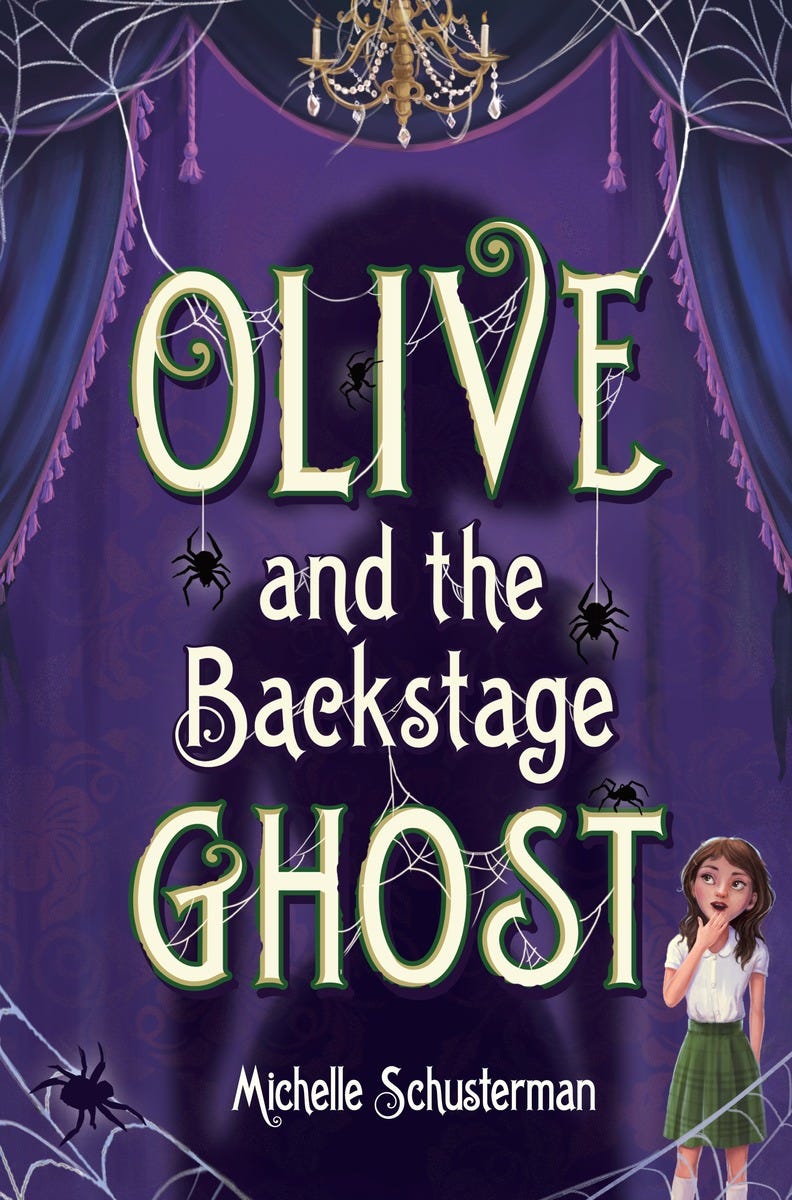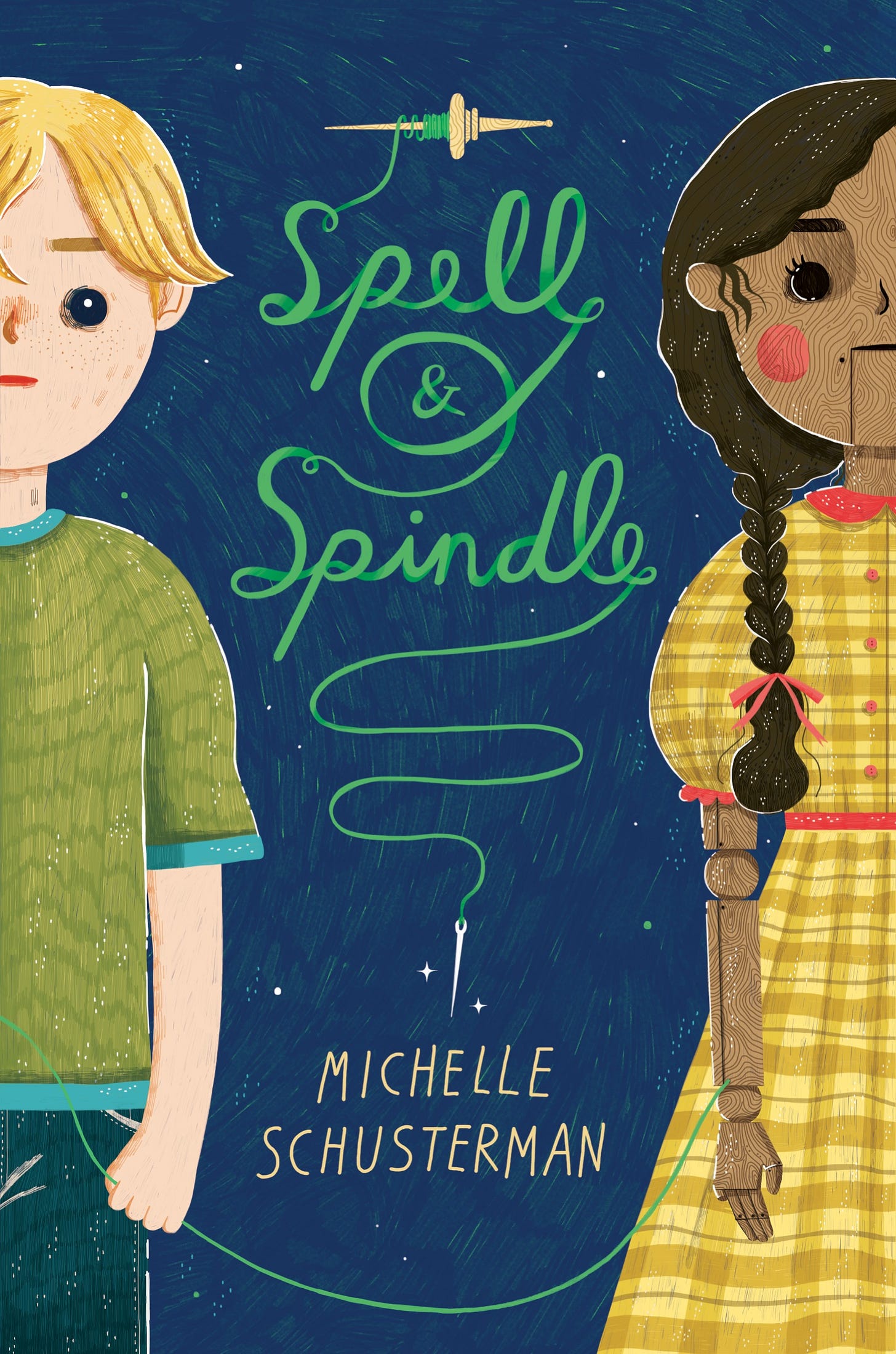Rewriting your novel doesn't have to be scary.
(It can even be easier—and faster—than revising.)
When I signed with my literary agent in March 2010, the book we sent out on submission didn’t sell. So I buckled down and wrote another one. I was in love with this book. The title was Blind Pigeon, and while I’m sure I had a good explanation for that at the time, it eludes me now. It was a creepy middle grade story inspired by the history of the Seattle Underground, the Pixar short Alma, and the poetry of Edgar Allan Poe.

Even though my first book hadn’t sold, my confidence as a writer was pretty high because I’d managed to finally sign with an agent and that first book did get some interest from editors. So I took risks with this book and pushed myself out of my comfort zone. And if I’m being honest, I one hundred percent believed I would get an offer.
Spoiler: I didn’t. Because that book never even went on submission.
I sent it to my agent. Once she read it, she called me—to praise my genius, I assumed. She did start off the call by saying some (I believe) genuinely kind things about the story, specifically the prose, the voice, the characters.
But.
She found the plot convoluted and hard to follow, and she wasn’t sure what the story was about—like the heart of it. She couldn’t even sum the premise up in one or two sentences. It was the story of a girl cast in a show in a haunted theater. It was also the story of a girl whose sister’s soul had been swapped with a doll. It was also the story of a girl who discovered an underground city filled with saloons, can can girls, and soulless doppelgangers.
What my agent would never say, but she must have been thinking it, was that this book was an absolute mess.
It was three stories crammed into one. Her advice to me on the phone that day was to pick one of those three ideas and write that story.
I can’t even say I was devastated because in truth, I was in denial. I couldn’t bear the idea of letting go of two of those three things. I thought no, I don’t have to rewrite this thing from scratch. I can fix this plot. I’ll make it work.
So I revised it, and I leaned EVEN HARDER into all three of those things. I changed the title to Imitations after one of my favorite Edgar Allen Poe poems. I went on the Seattle Underground tour multiple times and did more research and leaned into the historical element. I realized hey, the reason this plot is so complicated is because this story should be a series, DUH, so I added about 10,000 more words of setup and then ended the book on a cliffhanger, because I’d explain the rest in the sequel.
Yikes.
I sent this bloated mess of a draft to my agent. She read it, she called me, she very patiently explained that while there was a lot of good stuff in this story, and it was clear how much I loved it, it was even more convoluted now. Again, she reminded me to think about the heart of the story. What was the main character’s inner journey really about? Simplify!
I did not want to simplify. Because simplifying meant starting over.
The dreaded rewrite.
And at this point it was 2011. I’d spent over a year on this thing and I couldn’t bear the idea that I wasn’t close to submission. I wanted a book deal! I wanted to be a published author already! I thought surely after that first book came close, and I put so much work into this one, not to mention I had to be a better writer by now, that a deal was inevitable.
I told myself that I’d just gone about my revision the wrong way. I’d packed too much in and had a little too much fun imagining it as a series and I didn’t have to start over, I just had to cut the word count down and trim some fat. So that’s what I did.
To be clear: I didn’t rewrite, I revised. Again.
I sent it to my endlessly patient agent, who read it, and called me, and said: “I think we need to put this aside for now, and try to work on something new.”
I was devastated. This felt like such a huge step back. And all of my disappointment and anger was at myself, not at my agent, because the thing is, deep down in my gut I knew she was right. I’d known ever since that first phone call when she said this is three books crammed into one. But I kept revising instead of doing what needed to be done and rewrite.
So how do you know if your draft needs to be rewritten from the ground up? When I look at my beta notes or edit letters, I look for problems that are structural. This, for me, typically means there’s a giant issue with the plot. But that’s not always the case.
It might be a character development problem. For example, you might have a solid plot but your editor points out your main character doesn’t change. There’s no transformation. They are essentially the exact same person at the end as they were at the beginning, and in that case...what’s the point of the story? That kind of note, the kind of note that you read and you can suddenly feel how weak the foundation of your book is? That’s an indication you need to rewrite.
It might also be a world-building problem. Your protagonist might go through an incredible transformation, your plot is spot on, but maybe the magic system you created doesn’t have rules, it just works exactly the way the characters need it to at crucial moments. That’s probably not an easy tweak, because you have to set some rules, and that’s going to change what your characters do with that magic, and changing their actions is going to change your plot.
Imagine your story is a Jenga tower. Edits that require moving pieces around in the top half, that’s a revision. But if your notes are telling you those bottom pieces have to shift—or be taken out completely—that’s a sign you’re looking at a rewrite, because once you pull those pieces out your story is probably going to fall apart. You want to start from the beginning with a solid foundation and build it back up again.
If that sounds scary, I promise it’s not. Think of it this way: would you rather pull a piece out from the bottom of the Jenga stack and cross your fingers that your story stays upright? Or would you rather take all the blocks that you have and build a new stack that you know is going to be solid?
Rewriting is often actually easier than revising. I’m speaking from experience, because I haven’t finished my story about that soul stealing doll underground city haunted theater doppelganger mess I wrote.
After I stopped working on that book, I floundered a little bit trying to come up with another idea. I ended up getting an IP project with Penguin for what would be my first series, I HEART BAND!. Working on that taught me a lot about plotting and revising. I improved as a writer, and I sold my own series to the same imprint. Two series and four years later, my editor announced she was moving to another house, and invited me to submit my next book to her there. I knew my editor really well by this point and we had very similar tastes in stories and while I hadn’t quite started decided what my next book would be, I wanted to take advantage of the fact that she would be building a brand new list. So I opened that big, messy draft of Imitations for the first time in four years and read through it and realized wow, my agent was right. This was three books crammed into one.
What was the main character’s inner journey really about? For the first time, I really considered this. I realized that the heart of her story was her contentious relationship with her overly controlling mother. It was a story about grief and loss and forgiveness. And all of that had been completely buried in plot. I picked one of those three ideas—the girl cast in a show in a haunted theater—and put together an outline and a few chapters in less than a week. It was quick and easy because these characters and that world had lived in my head for so long. I just needed to knock the pile of blocks down and build a new tower. I sent it to my agent (her response: “finally!”), and my editor acquired it at her house two weeks later. That book was Olive and the Backstage Ghost. It came out in 2017, seven years after I first started writing Olive’s story.
SEVEN. YEARS.
If I’d taken my agent’s advice the first time around, it probably would’ve been published a lot sooner.
And here’s the really cool part. This was a two book contract, but Olive was a standalone. So when my editor asked for a proposal for book two, I went back to that first messy draft again. I still loved the premise of dolls who stole children’s souls, so I pulled that and wrote another brand new outline. That ended up being Spell & Spindle.
That third idea, the doppelgangers in the underground city? I haven’t forgotten it, and I hope one day I find the right characters for that story.
Rewriting isn’t starting over. All the work you put into that first draft, you aren’t throwing that away. You know your characters, your plot, your world, your story inside and out, flaws and all, and when you rewrite from the right foundation it’s going to come out so much more effortlessly.
Rewriting isn’t scary, it isn’t a setback, and it doesn’t mean you’ve wasted your time. The real waste of time is cautiously picking blocks out of your Jenga tower and shifting them around, watching the whole thing wobble precariously and never quite getting your story on solid ground.
What do you think? Does the thought of a rewrite scare you? Or would you rather start from scratch than attempt a big revision? I’d love to hear your thoughts!






You don't know how timely this advice is right now. You are always a fountain of inspiration and encouragement, and we are all so lucky to have you. Thank you.
It's a world-building problem, btw :)
I also learned this the hard way :'D I watched one of your videos that talked about going through your scene multiple times checking for different topics and rewriting, and I was like, "No way, do you know how long that's gonna take?!" Lol, like you don't know. Then months later, I was reading one of my chapters and said, "I could rewrite this better." And now that's part of my routine XD
I didn't know about those books you mentioned, they sound awesome! I gotta check them out. And the other one with the alien abduction at the school dance in one of your videos was such a fun idea too 😄